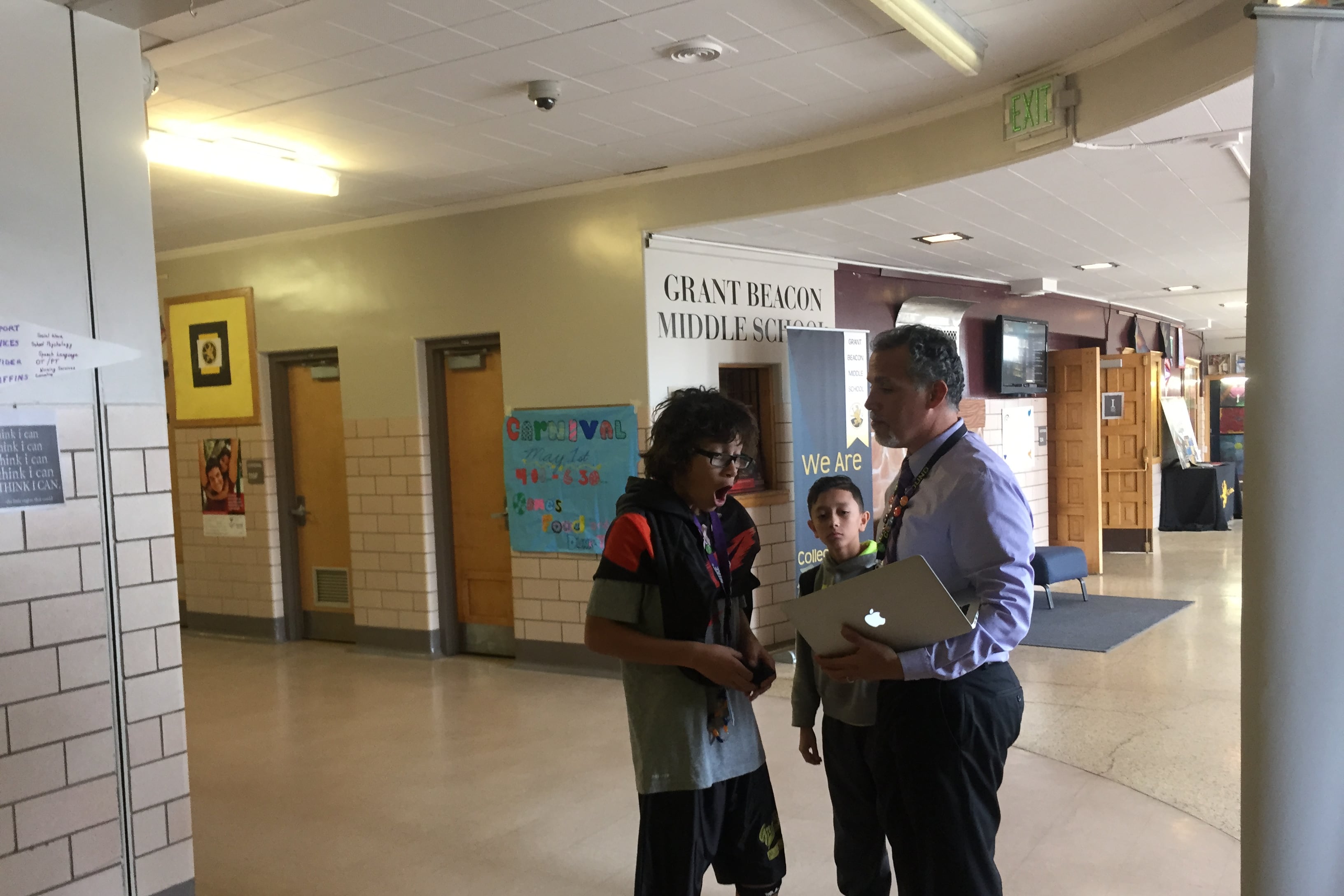A lawsuit filed Wednesday has the potential to test the strength of school autonomy in Denver Public Schools, a former stronghold of school reform that has since reversed course.
The nonprofit organization Beacon Network Schools, one of three innovation zones in DPS, is suing the district to stop the revocation of the zone. The Denver school board voted April 10 to revoke the zone, which is made up of two middle schools: Kepner Beacon and Grant Beacon.
Under the zone, the leaders of Kepner and Grant are overseen by a nonprofit board of directors and not by DPS, which gives the schools increased autonomy. Revoking the zone returns Kepner and Grant to district control.
The lawsuit argues that revocation causes “irreparable harm” to students, families, and teachers. “Beacon Zone students and families face uncertainty regarding the type of educational environment in which they will participate and will face a degraded school experience next year without the support of the Beacon Zone,” the lawsuit says.
DPS spokesman Scott Pribble said the district doesn’t comment on pending litigation.
Beacon Network Schools is also appealing the revocation to the State Board of Education.
The state board’s ruling won’t be binding. Instead, the state board can review the revocation and make a recommendation to the Denver school board, which has the final say. The appeal is the first time an innovation zone has taken advantage of a new state law passed last year.
In its lawsuit, Beacon Network Schools claims the Denver school board illegally revoked the zone. Beacon argues that a zone can only be revoked for one reason under state law: because students at one or more schools in the zone are not making sufficient academic progress.
In this case, Superintendent Alex Marrero recommended the zone be revoked for several reasons, including inadequate financial oversight by the zone board and concerns about the zone’s organizational health. He raised concerns with the unique employment arrangement of the Beacon zone’s executive director, Alex Magaña. Although Magaña is a DPS employee, he answers to the Beacon zone board, not to DPS administrators.
Beacon argues that none of those are legitimate reasons to revoke a zone.
Marrero also cited low student test scores at Kepner Beacon. Only 21% of students met expectations in literacy on state tests last spring, while 6% met expectations in math.
But Beacon claims the data is limited and flawed. DPS officials had previously said in an email to principals that academic data from last school year was “not an accurate representation of an entire student body” because “far fewer” students took the test than usually do.
Beacon officials have said they suspect Marrero’s recommendation to revoke the zone was based on a disagreement with Magaña. Marrero testified at the state Capitol against the bill to allow innovation zones to appeal to the state board. Magaña testified for it.
Eliot Lewis, chair of the Beacon Network Schools board and a former Grant Beacon parent, wrote in a signed statement attached to the lawsuit that he believes the school board’s decision to revoke was “based primarily on personal enmity between District personnel, specific Board members, and BNS Executive Director Alex Magaña.”
Marrero has said the bill testimony had nothing to do with the revocation.
Beacon is asking the Denver District Court to grant both a temporary restraining order and a preliminary injunction to stop DPS from taking over Kepner and Grant.
DPS has already started the process, the lawsuit says, including by suggesting that Kepner and Grant staff may be required to attend “district-mandated summer programming” as opposed to summer programming put on by the Beacon zone.
The lawsuit argues that Beacon is in a time crunch. DPS has asked Kepner and Grant to submit new school-level innovation plans that erase all references to the zone by May 10. The temporary restraining order is meant to pause that timeline while the court considers the preliminary injunction and the state board considers the appeal.
The state board has 60 days from Wednesday to hear the appeal.
There are only three innovation zones in the entire state that the appeal law applies to, and all three are in DPS. Beacon is one of them. Another, the Luminary Learning Network, was renewed by the Denver school board last month.
The other zone, the Northeast Denver Innovation Zone, is regrouping after teachers at its largest school, Northfield High, voted to exit the zone in March. The school board has not yet decided whether to renew the NDIZ zone or revoke it.
Melanie Asmar is a senior reporter for Chalkbeat Colorado, covering Denver Public Schools. Contact Melanie at masmar@chalkbeat.org.






